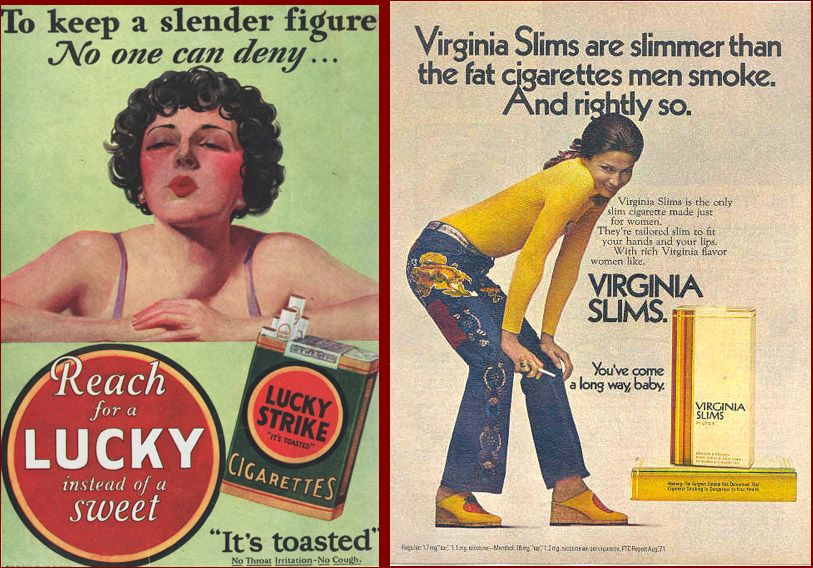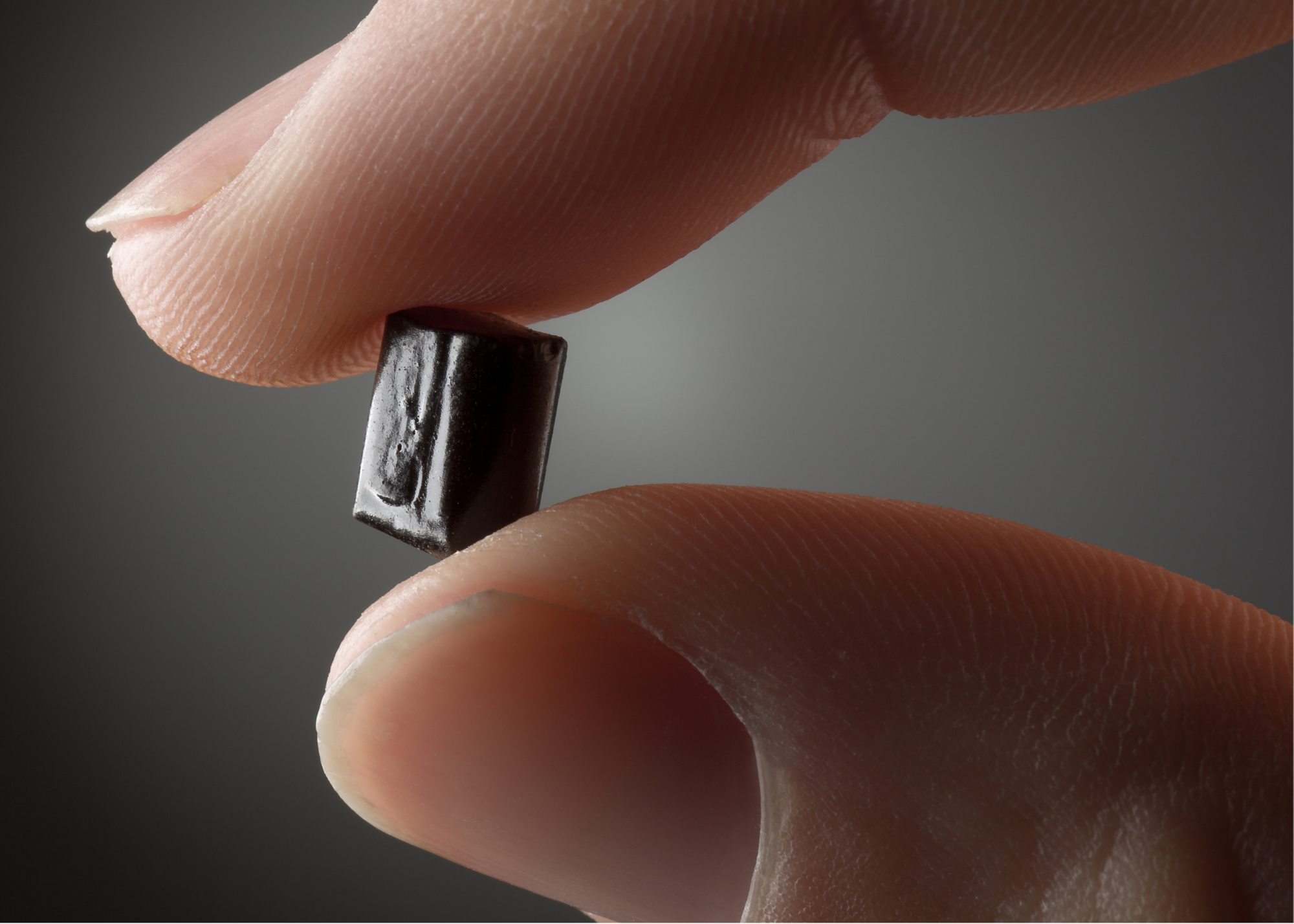Do cigarettes really keep you from gaining weight?
Traditional ads pushed by Big Tobacco from years past glamourized smoking. Men smoking cigarettes were depicted as suave, handsome, and manly. Women who smoked cigarettes were cool, sexy, and most of all: thin.
Those advertisements couldn’t be further from the truth today. Not only are Big Tobacco’s advertisements heavily regulated, but the picture they painted has changed dramatically. For smokers seeking services or treatment to help them quit, two-thirds were found to be overweight or obese, according to a recent clinical study from Obesity.

It’s long been believed that people who smoke are thinner -- but there’s a method to this madness. Nicotine may have an effect on whether your brain signals that it’s hungry. If you suddenly stop smoking cigarettes cold turkey, it’s no surprise that this disruption will likely result in adding on a few pounds.
Researchers have found that certain smokers, even teens, favor cigarettes or vapes to lose or maintain weight. There’s plenty more to learn about losing weight, nicotine, cigarettes, and why you gain weight when you quit smoking.
Why do people gain weight when quitting cigarettes?
In the earlier cited Obesity study, one cited factor in why former smokers gain weight is the increase in energy expenditure and decrease in energy exerted. Another is how former smokers may replace the “hand to mouth” behavior of smoking cigarettes with eating more food throughout the day, even when not hungry. Additional contributors include low satiety, emotional eating, and lack of sleep.
If you quit cigarettes, did you find your taste buds change? Perhaps you moved on cigarettes and found yourself craving desserts. Studies found this to be the case, likely because your blood sugar drops sharply once quitting and typical withdrawl symptoms (headaches, dizzines) may have you reaching for more sweets to make it through your first few days without cigarettes. This can be another source of gaining weight when quitting cigarettes.
If you’ve tried to quit smoking and also attempted to count your macros or stick with a strict diet at the same time, achieving these two tough goals might cause you to crash and burn quickly. Research determined that eliminating certain foods can cause stress and decrease dopamine levels, increasing the likelihood that your body will crave nicotine.
Maybe you’ve made a New Year’s resolution to cut back on cigarettes AND start a new diet at the same time. Try nicotine replacement therapies (NRTs) like LUCY chew and park nicotine gum to help you curb cigarette cravings and not feel like you’re depriving yourself.
Experts suggest that diet and exercise mitigate any weight gained after eliminating cigarettes. And after you’ve stopped smoking, your lungs may be able to function normally again, making those daily walks or trips to the gym that much easier.
What about nicotine and weight loss surgery?
Research indicates that for adults seeking evaluation for weight loss surgery, two thirds had a history of smoking and approximately 27% were presently smoking when considering the procedure.
Doctors generally recommend (or even require) you quit smoking or vaping prior to surgery. This is because studies have determined that smoking can cause ulcer formation and increase certain risks during surgery, including bleeding, stomach obstruction, and other life-threatening injuries. Side effects from bariatric surgery, such as severe pain, nausea, and vomiting, are significantly exacerbated due to smoking.
Some practitioners may even check your nicotine levels prior to the procedure to ensure you’ve stopped smoking cigarettes or vaping. These nicotine tests may be problematic if you’re using NRTs to help you quit, but a simple conversation with your doctor should remedy this. After all, you’re using nicotine for good!

Is nicotine an appetite suppressant?
The neurons in your brain that affect your appetite have something to do with nicotine. Researchers recently determined that nicotine works by triggering certain nerve cells in the brain that control your appetite, according to a Yale University study in 2011.
Before this, it was anecdotally recognized that people who smoked were thinner. The concept of smoking cigarettes for weight loss was actually promoted by Big Tobacco over a century ago. The “Reach for a Lucky” campaign from Lucky Strike cigarette company debuted in the early 1920s, depicting attractive women as beautiful, slender, and stylish. This was among the first advertisements targeting women and giving them a reason to smoke cigarettes -- obtaining their ideal figure.
Tobacco behemoth Philip Morris brought Virginia Slims to market in the 1960s. The brand chose to feature slender women in ads, smoking their product that was designed exclusively for women, with a much slimmer cigarette length, best fitting in a woman’s purse pocket.
Are people really vaping to diet?
Some people struggling with their weight, who were previously non-smokers, are now vaping for weight loss.
Researchers at Oberlin College conducted a study, finding that those who chose to vape in order to lose weight or control their weight, used vapes more frequently, restrict calories, and seek coffee or vanilla flavored vape liquid.
The vaping epidemic hitting teenagers is no secret, but another Yale University study analyzed those who chose candy-flavored e-liquids favored vaping as a means of appetite control.

Can nicotine gum help you lose weight? Do nicotine lozenges or a nicotine patch help with weight loss?
Research is unclear whether or not nicotine replacement therapies, such as nicotine gum, lozenges, or the patch, actually work as an appetite suppressant. A study in Denmark concluded that “caffeine added to nicotine chewing gum appears to amplify its attenuating effects on appetite” although the limited research only enlisted 12 participants.
LUCY chew and park and nicotine lozenges were designed to be used by adult smokers looking for a cleaner way to get the nicotine their body craves, without the harmful effects from cigarettes. Our products are designed to help smokers, not those seeking a weight loss solution.
The information contained in this website is provided for general informational purposes only and is not intended as, nor should not be construed as a substitute for, professional medical or health advice on any subject matter. Please consult your physician regarding any medical treatment decisions.